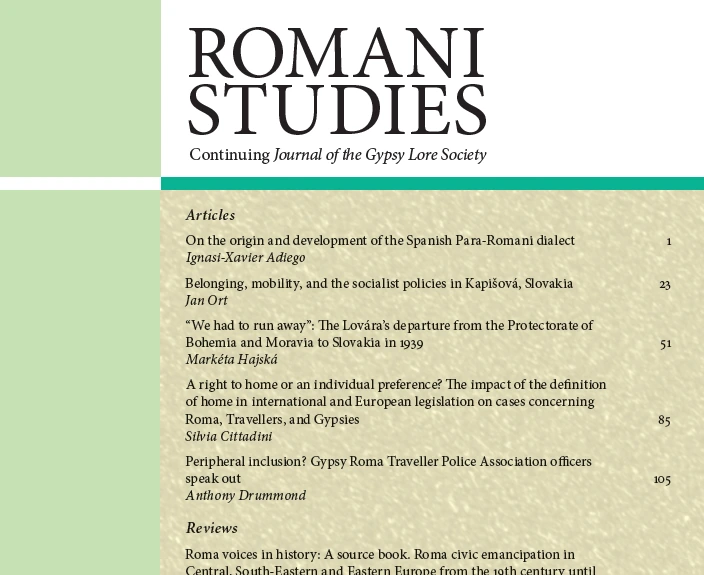
Belonging, mobility, and the socialist policies in Kapisova, Slovakia by Jan Ort
The article focuses on the local practice of the central policies of socialist Czechoslovakia that aimed to regulate the movement of Roma, namely the legal efforts to settle nomadic people and later the plan of controlled resettlement of Roma from eastern Slovakia to the Bohemian lands. Although migration was a shared experience of the inhabitants of a historically marginalized region of eastern Slovakia, Roma mobility was securitized and understood in central policy as a qualitatively different movement of G*psies. Focusing primarily on the life trajectories of the Roma, all of which were connected to the social space of a particular municipality in northeastern Slovakia, the study examines the ways in which different aspects of their mobility affected the negotiation of their ambivalent position in the local hierarchy of socio-economic relations. In particular, it shows that despite the implementation of these restrictive policies, some Roma were able to maintain not only the continuity of migration as an independent economic strategy, but also the continuity of local belonging, even with the help of other non-Romani actors. This locally focused study contributes to a broader debate about the character of Roma agency and their social position in Central and Eastern Europe (see, for example, Marushiakova and Popov 2021). On the one hand, it seeks to break with the idea of the homogeneity of the Roma experience vis-à-vis socialist policies, and on the other, it builds on research on the relationship between local belonging and Roma (self-)identification.
Published in Romani Studies, 2022-06, Vol. 32 (1), 23-50.